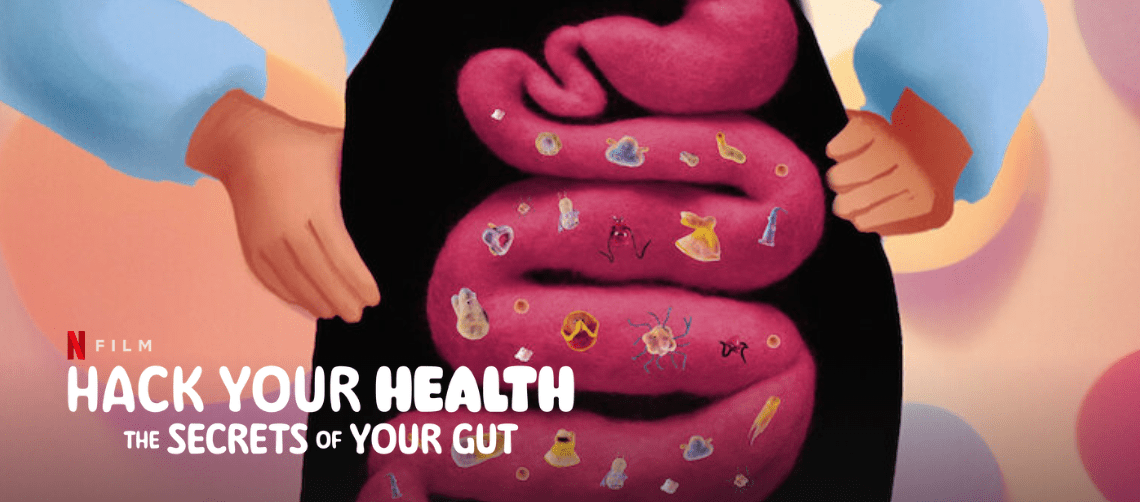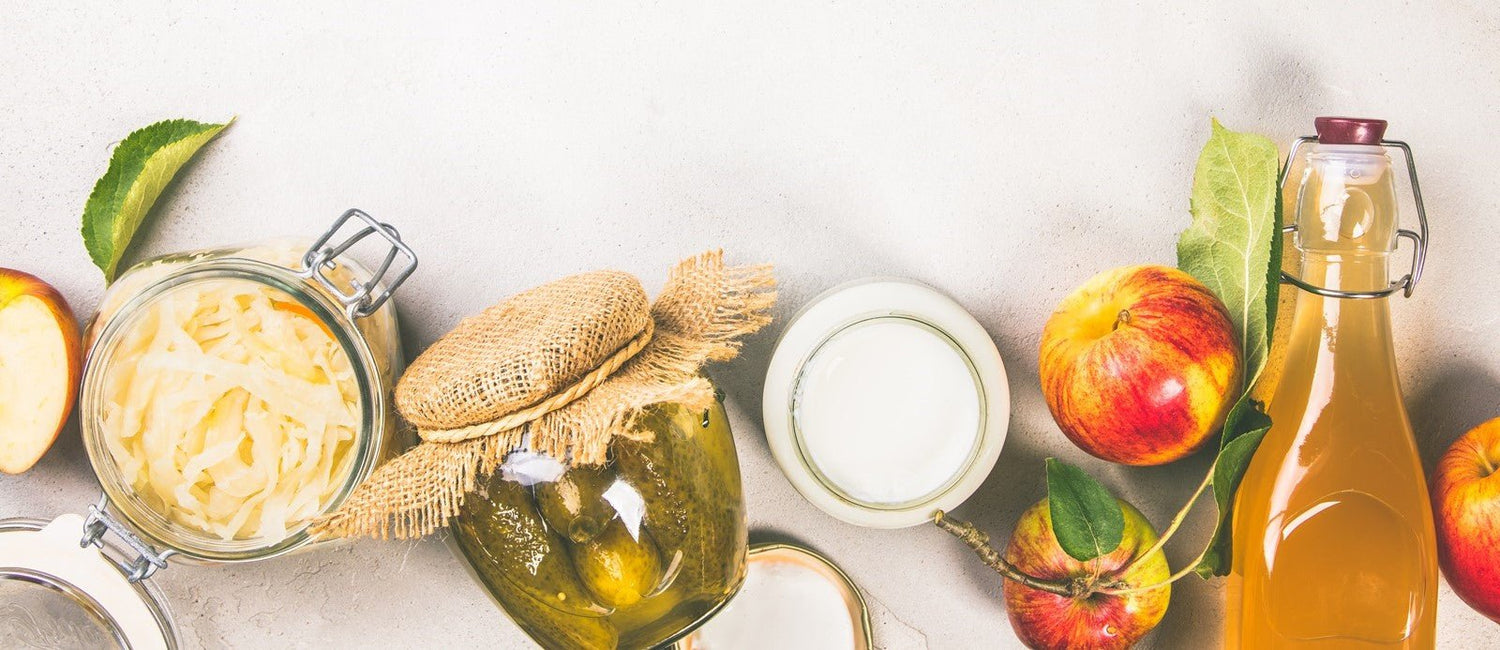It is no longer a secret that today's high sugar consumption has many negative consequences for our health. It's not just about common problems with obesity or illnesses such as diabetes, cardiovascular diseases, etc., but also about the negative influence on our important intestinal microbiome. We know that it would be optimal to avoid sweetening foods entirely, but is that realistic? Probably not - a large proportion of people find it incredibly difficult to stop eating sweetened foods. Breast milk was already sweet and even afterwards we often associate sweet foods with moments of contentment, relaxation and happiness. Since it would be very important to avoid sugar for health reasons, a very exciting question in nutrition is whether there is a way to sweeten that is not unhealthy for us. I won't be able to answer this question conclusively, but it is believed that there are sweeteners that could be a viable alternative.
What are sweeteners and what are sugar substitutes?
A distinction must be made between sweeteners and sugar substitutes!
Sweeteners
With the exception of stevia, sweeteners are artificially produced substances that have practically no calories, do not cause tooth decay and have a sweetening power that is much higher than that of sugar. These include, for example, acesulfame K (E 950), aspartame (E 951), cyclamate (E 952), saccharin (E 954), sucralose (E 955). Sweeteners are additives and must be listed on the ingredients list and there is an ADI value (=Acceptable Daily Intake) set by the WHO, which defines the maximum daily dose that is considered medically safe. As an example, this is 4 mg per kilogram of body weight for stevia and 40 mg per kilogram of body weight for aspartame. Of health interest is whether there really is no change in the intestinal microbiome up to this dose, although some studies unfortunately show a different picture. A study from 2021 showed that even the smallest amounts of sucralose, saccharin or aspartame are enough to negatively affect the intestinal bacteria. This study showed that when these sweeteners were consumed, the bacteria Escherichia coli and Enterococcus faecalis changed so that they were able to penetrate the intestinal wall, which can lead to infections in the body [1]. Unfortunately, this study is not an isolated case.
If we look at the metabolism of some well-known sweeteners such as aspartame, acesulfame-K, sucralose and saccharin, it is noticeable that so little of aspartame and acesulfame-K reaches the large intestine that an influence on the intestinal microbiome should actually be viewed as unrealistic. These two substances are largely excreted through the urine and less than 1% of them reaches the intestinal bacteria. Although around 85% of sucralose reaches the large intestine, 94% to 99% of it can be found unchanged in the feces. Can that 1% to 6% of a very small amount really make a difference? [2] The metabolism of steviol glycoside (=Stevia) depends on the intestinal microbiota, which breaks down the glycosides into steviol, which can then be absorbed by the host [5].
Sugar substitutes
Sugar substitutes are chemical polyols, so-called sugar alcohols. They are typically less sweet than sugar, provide few to no calories, and have little effect on the body's blood sugar levels and insulin secretion. They are therefore very exciting because you can generally use them like sugar and can also bake or cook with them, for example. The sugar substitutes include, for example, erythritol (E 968), xylitol (E 967), isomalt (E 953), sorbitol (E 420) and monk fruit (E 968). There is no ADI value set by the WHO for sugar alcohols. However, in larger quantities they can have a laxative effect.
The advantages of sweeteners and sugar substitutes are obvious: the variety of different substances is so large that sugar can be replaced practically anywhere. We can use it to save calories and counteract increasing obesity, with little or no effect on blood sugar levels and insulin secretion, which could protect us from insulin resistance and diabetes. We don't have to give up sweets. But although this all sounds very positive, it is unfortunately not that simple and the reason for this can primarily be found in our intestinal microbiome.
 Dr. med. dent. Aline Birgelen, nutritionist/food coach from Zurich
Dr. med. dent. Aline Birgelen, nutritionist/food coach from Zurich
What do the current studies say on this topic?
First of all, I would like to point out that studies on nutritional issues are not that easy to interpret. If you work with mice and rats, it is possible to work with many “test subjects” and to standardize conditions, but the results can never be transferred 1:1 to humans. If you do the studies with people, the problems really begin. Firstly, it is difficult to find enough volunteers who are willing to take part over a longer period of time. Secondly, the conditions for optimal results would have to be standardized, which means that everyone eats and drinks exactly the same, moves the same amount, is exposed to the same stress, takes no or the same medication, etc. All factors that also have a major influence on our intestinal microbiome . Even if this were successful, everyone has different requirements because no one has previously lived exactly like another study participant. It is therefore not surprising that the results in the studies are often very different.
A very good review was published in April 2023, which summarized many studies on the sweeteners aspartame, acesulfame-K, saccharin and sucralose. Of the 177 studies published on the topic, only 24 could be evaluated in the end because they were the only ones that met all the requirements. There are both human studies and in vitro studies on these sweeteners [2].
In the studies carried out so far, different effects of the above-mentioned sweeteners on the metabolism of the intestinal microbiota have been described. See Figure 1. Although a very negligible amount of ingested sweeteners actually enter the intestine, studies suggest that intestinal bacteria can metabolize them, leading to changes in their metabolic activity and modulating and negatively altering the production of short-chain fatty acids [3 ,4]. These short-chain fatty acids, such as acetate, propionate and butyrate, are of great importance for our health.

Figure 1. Overview of some of the documented effects of NNS on humans and gut microbiota metabolism. Created with BioRender.com. [2]
However, the review also makes it clear how different the results of previous studies are. Although some human studies have found clear dysbiotic effects on the gut microbiota, many randomized controlled trials report a lack of significant effects [2]. But if we look again at the above-mentioned study from 2021, it shows a very clear negative effect of the sweeteners examined there. It was shown that just two cans of Coca-Cola Light contain a concentration of sweetener that significantly increases the harmfulness of E. coli and E. faecalis by allowing them to overcome the intestinal wall and enter the bloodstream [1].
A review of 14 studies on stevia was published in April 2022. These are only studies carried out in vitro, i.e. not on humans. The majority of studies even showed a very positive result, in that stevia substances were able to mimic a probiotic effect to protect against inflammatory processes and dysbiosis. But that was only one side of the coin and a few studies painted a different picture [5].
What all the studies clearly show is that the effect, if there is one, also depends on the amount and regularity of the intake of the sweeteners.
But what about the sugar substitutes xylitol, erythritol and monk fruit?
Erythritol and xylitol can be found in almost all common supermarkets today.
Erythritol is almost completely absorbed and excreted in the urine. This makes it relatively well tolerated. Studies show that erythritol has no effect on blood sugar levels and insulin and also stimulates the release of intestinal hormones, which influence the feeling of satiety and thus promote weight loss [6]. A 2021 study showed that the concentration of short-chain fatty acids, such as acetate, propionate and butyrate, was higher in serum, feces and white adipose tissue in the group that consumed erythritol than in the control group. Since the short-chain fatty acids have many positive properties and are produced by intestinal bacteria, this study could be interpreted as meaning that erythritol does not have a negative effect on our intestinal microbiome [7,8].
Xylitol, also known as birch sugar, is digestible by microorganisms in the large intestine and, according to a 2021 study, is said to promote the proliferation of beneficial bacteria and the production of short-chain fatty acids. However, the mechanism underlying these effects could not be clearly demonstrated in this study. What has been shown is that key enzymes of xylitol metabolism occur in Bacteroides and Lachnospiraceae, making them key bacteria in xylitol digestion. It was shown that xylitol increases the production of propionate. This lowered the pH and reduced the amount of Escherichia and Staphylococcus. See Figure 2 [9].
 2. The overall mechanism of xylitol prebiotic effect (red line—promote, blue line—inhibit, black line—neutral) [9]
2. The overall mechanism of xylitol prebiotic effect (red line—promote, blue line—inhibit, black line—neutral) [9]
In my opinion, a particularly interesting sugar substitute is monk fruit. A sugar substitute that is still rarely available here today. Monk fruit is an exotic fruit from China that is about 300x sweeter than sugar but has no calories. In the USA you can get it mixed with erythritol and this combination tastes very similar to regular table sugar. In February 2020, a study was published in which the influence of a probiotic yogurt sweetened with monk fruit on health was examined. It was found that not only could it regulate blood sugar and insulin resistance, but that this yogurt also had a positive effect on the status of the intestinal microbiota and increased the production of short-chain fatty acids. These positive effects were not found in the group that received probiotic yogurt sweetened with sucrose [10].
Finally, a few personal words.
Many more studies, especially human studies, will be necessary to be able to clearly assess what effect sweeteners and sugar substitutes have on our intestinal microbiome and how much of them we can really consume safely. Based on my research, I can now recommend the sugar substitutes xylitol, erythritol and monk fruit, as well as the sweetener stevia, to my customers with a better feeling than the sweeteners aspartame, acesulfame-K, sucralose and saccharin. I would leave the latter out as much as possible.
Since artificial sweeteners can help you implement a healthy diet and maintain it in the long term, I think it's okay to use them every now and then. The many other healthy foods and the weight loss that may accompany a change in diet will also bring numerous other health benefits and have a positive effect on our intestinal microbiome. In addition, it replaces common table sugar, which we know has a negative impact on our intestinal microbiome.
In my opinion, sweetening your daily porridge or low-fat quark with a little erythritol is completely fine, but you should try to avoid your daily sweet drink, regardless of whether it contains sugar or sweeteners. That doesn't mean that you can't drink a cold Coca-Cola Zero on a hot summer day, because like everywhere else, the dose will ultimately make the difference.
A guest article from nutrition coach Dr. med. dent. Aline Birgelen
I am Aline Birgelen, nutritionist/food coach and former dentist from Zurich. In my work as a nutritionist, I am able to help a wide variety of people on their way to greater well-being, health and often the figure they want. My main focus is on the holistic view of people, whereby the intestine and its microbiome, as the center of health, usually have a special place.
Nutrition and health is my greatest passion and it means a lot to me to be able to inspire other people about it.
More from Aline on hers website or also on Instagram: Aline Birgelen Instagram
Note:
This article is intended for informational purposes only and should not be construed as medical information or instructions. The recipes are intended for inspiration and are not intended as therapeutic measures. If you have any health problems, we recommend that you contact a doctor or other expert immediately.
References:
- Artificial Sweeteners Negatively Regulate Pathogenic Characteristics of Two Model Gut Bacteria, E. coli and E. faecalis, Aparna Shil and Havovi Chichger, May, 2021
- Effect of Non-Nutritive Sweeteners on the Gut Microbiota, Andrea Conz, Mario Salmona and Luisa Diomede, April, 2023
- Artificial Sweeteners Induce Glucose Intolerance by Altering the Gut Microbiota. Suez, J.; Korem, T.; Zeevi, D.; Zilberman-Schapira, G.; Thaiss, CA; Maza, O.; Israel, D.; Zmora, N.; Gilad, S.; Weinberger, A.; et al. Nature 2014, 514, 181–186.
- Gut Microbiome Response to Sucralose and Its Potential Role in Inducing Liver Inflammation in Mice. Bian, X.; Chi, L.; Gao, B.; Tu, P.; Ru, H.; Lu, K. Front. Physiol. 2017, 8, 487.
- The Effects of Stevia Consumption on Gut Bacteria: Friend or Foe? Arezina N. Kasti, Maroulla D. Nikolaki, Kalliopi D. Synodinou, Konstantinos N. Katsas, Konstantinos Petsis, Sophia Lambrinou, Ioannis A. Pyrousis and Konstantinos Triantafyllou, April, 2022
- Erythritol: An In-Depth Discussion of Its Potential to Be a Beneficial Dietary Component, Tagreed A. Mazi and Kimber L. Stanhope,, Jan, 2023
- Erythritol Ameliorates Small Intestinal Inflammation Induced by High-Fat Diets and Improves Glucose Tolerance, Rena Kawano, Takuro Okamura, Yoshitaka Hashimoto, Saori Majima, Takafumi Senmaru, Emi Ushigome, Mai Asano, Masahiro Yamazaki, Hiroshi Takakuwa, Ryoichi Sasano, Naoko Nakanishi, Masahide Hamaguchi, and Michiaki Fukui, Jun, 2021
- Plausible Biological Interactions of Low- and Non-Calorie Sweeteners with the Intestinal Microbiota: An Update of Recent Studies, Julio Plaza-Diaz,1,2,3 Belén Pastor-Villaescusa,1,4,5 Ascensión Rueda-Robles,1,2 Francisco Abadia-Molina,2,6 and Francisco Javier Ruiz-Ojeda, April, 2020
- Xylitol enhances synthesis of propionate in the colon via cross-feeding of gut microbiota, Shasha Xiang, Kun, Mian, Jian Ying, Huanhuan Wang, Jianzhong Han, Lihua Shi, Jie Xiao, Yubiao Shen, Xiao Feng, Xuan Bao, Yiqing Zheng, Yin Ge, Yalin Zhang, Chang Liu, Jie Chen, Yuewen Chen, Shiyi Tian, Xuan Zhu, Mar, 21
- Effects of a synbiotic yogurt using monk fruit extract as sweetener on glucose regulation and gut microbiota in rats with type 2 diabetes mellitus, Qingfeng Ban, Jianjun Cheng, Xiaomeng Sun, Shanbo Zhao, Xiao Song, Mingruo Guo, Feb, 2020
References
- Artificial Sweeteners Negatively Regulate Pathogenic Characteristics of Two Model Gut Bacteria, E. coli and E. faecalis, Aparna Shil and Havovi Chichger, Mai, 2021
- Effect of Non-Nutritive Sweeteners on the Gut Microbiota, Andrea Conz, Mario Salmona and Luisa Diomede, April, 2023
- Artificial Sweeteners Induce Glucose Intolerance by Altering the Gut Microbiota. Suez, J.; Korem, T.; Zeevi, D.; Zilberman-Schapira, G.; Thaiss, C.A.; Maza, O.; Israeli, D.; Zmora, N.; Gilad, S.; Weinberger, A.; et al. Nature 2014, 514, 181–186.
- Gut Microbiome Response to Sucralose and Its Potential Role in Inducing Liver Inflammation in Mice. Bian, X.; Chi, L.; Gao, B.; Tu, P.; Ru, H.; Lu, K. Front. Physiol. 2017, 8, 487.
- The Effects of Stevia Consumption on Gut Bacteria: Friend or Foe? Arezina N. Kasti, Maroulla D. Nikolaki, Kalliopi D. Synodinou, Konstantinos N. Katsas, Konstantinos Petsis, Sophia Lambrinou, Ioannis A. Pyrousis and Konstantinos Triantafyllou, April, 2022
- Erythritol: An In-Depth Discussion of Its Potential to Be a Beneficial Dietary Component, Tagreed A. Mazi and Kimber L. Stanhope,, Jan, 2023
- Erythritol Ameliorates Small Intestinal Inflammation Induced by High-Fat Diets and Improves Glucose Tolerance, Rena Kawano, Takuro Okamura, Yoshitaka Hashimoto, Saori Majima, Takafumi Senmaru, Emi Ushigome, Mai Asano, Masahiro Yamazaki, Hiroshi Takakuwa, Ryoichi Sasano, Naoko Nakanishi, Masahide Hamaguchi, and Michiaki Fukui, Jun, 2021
- Plausible Biological Interactions of Low- and Non-Calorie Sweeteners with the Intestinal Microbiota: An Update of Recent Studies, Julio Plaza-Diaz,1,2,3 Belén Pastor-Villaescusa,1,4,5 Ascensión Rueda-Robles,1,2 Francisco Abadia-Molina,2,6 and Francisco Javier Ruiz-Ojeda, Apr, 2020
- Xylitol enhances synthesis of propionate in the colon via cross-feeding of gut microbiota, Shasha Xiang, Kun, Mian, Jian Ying, Huanhuan Wang, Jianzhong Han, Lihua Shi, Jie Xiao, Yubiao Shen, Xiao Feng, Xuan Bao, Yiqing Zheng, Yin Ge, Yalin Zhang, Chang Liu, Jie Chen, Yuewen Chen, Shiyi Tian, Xuan Zhu, Mar, 21
- Effects of a synbiotic yogurt using monk fruit extract as sweetener on glucose regulation and gut microbiota in rats with type 2 diabetes mellitus, Qingfeng Ban, Jianjun Cheng, Xiaomeng Sun, Shanbo Zhao, Xiao Song, Mingruo Guo, Feb, 2020





